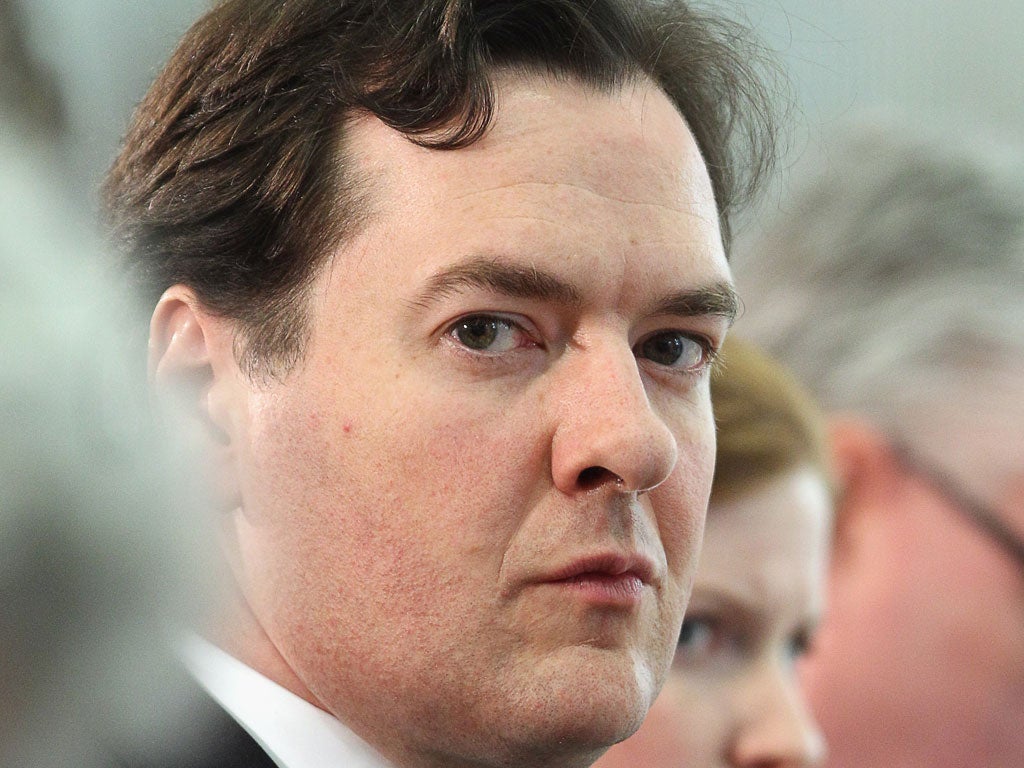Recession deeper than feared after contraction of 0.3%

Britain's double-dip recession is deeper than previously thought, after revised estimates showed a sharper decline in the economy in the first three months of 2012.
Gross domestic product (GDP) shrank by 0.3% between January and March, down from a first estimate of 0.2%, with much of the deterioration due to a 4.8% decline in construction - the sector's steepest fall in 11 years.
Labour said the revised figures from the Office for National Statistics (ONS) showed that the coalition Government's austerity programme had failed, and called on David Cameron for a change of course to boost growth and jobs.
But Treasury minister Chloe Smith insisted the Government would not be deflected from its drive to get the deficit down.
"We need to stick to our path. It would not be acceptable to fail to deal with our debts," she told the BBC.
Ms Smith indicated that the most appropriate response might be for the Bank of England to print more money or cut interest rates, as the International Monetary Fund recommended in its report on the UK economy earlier this week.
"Monetary easing would be for the Bank of England to consider," she said. "That would be one of our first lines of defence."
The second estimate, which could be revised later, means the UK is in a technical recession - defined as two quarters of decline in a row - following a 0.2% fall in national income in the final three months of 2011.
Economists and business leaders have warned that a technical recession will hit confidence and could cause businesses to rein in spending at a time when they are being encouraged to invest to stimulate growth.
The current downturn is expected to be nothing like as severe as the previous recession of 2008/09, which spanned more than a year.
But uncertainty remains over the future of the eurozone, following an inconclusive summit in Brussels last night at which EU leaders failed to reach agreement on the balance between austerity and growth.
Chief Secretary to the Treasury Danny Alexander said that the UK economy was suffering a "chilling" effect from the situation in Greece, which goes to the polls on June 17 amid fears it might be forced out of the euro.
Speaking on ITV1's Daybreak, Mr Alexander said: "No rational person would think it would be right for Greece to come out of the euro."
Downing Street pointed out that while exports of goods to non-EU countries had grown by 4.4% over the period, exports to the EU had fallen by 3.1%.
"We have always made clear - and the Chancellor said in his autumn statement - that if the rest of Europe doesn't grow it would prove hard to avoid a recession here in the UK," said Mr Cameron's official spokesman.
"We cannot be immune from what is happening on our doorstep."
But shadow chancellor Ed Balls said that Britain's economic problems could not be blamed exclusively on the crisis in the eurozone.
"This is a recession made in Downing Street by this Government's failed policies," said Mr Balls
"Despite all the problems in the euro area, France, Germany and the eurozone as a whole have so far avoided recession and only exports to other countries stopped us going into recession a year ago.
"The result is that Britain is now in a weaker position if things get worse in the eurozone in the coming months."
Business leaders expressed surprise at today's gloomy figures from the ONS, which many had expected to be revised upwards.
David Kern, chief economist at the British Chambers of Commerce, said: "Fundamental doubts about the accuracy of the ONS's estimates persist. Virtually every business survey has indicated positive growth in the economy in the first quarter.
"Furthermore, the ONS's own labour market figures have shown an increase in employment and a 0.9% increase in the actual number of hours worked, which makes a quarterly fall in GDP difficult to comprehend. It is possible that the GDP estimate will be revised upwards later in the year."
The national chairman of the Federation of Small Businesses, John Walker, said: "Confidence among small businesses has picked up, and this resilience needs to be supported by Government if they are going to make use of it to pull Britain back out of recession.
"In order to strengthen economic recovery, Government policies must be bold to boost business investment and job creation - as well as consumer confidence."
The second estimate provides data for the expenditure side of the economy for the first time and revealed a slowdown in household spending, which increased by 0.1% in the first quarter, compared to 0.4% growth in the final quarter of last year.
But Government spending surged 1.6%, the biggest rise since the first quarter of 2008, driven by spending on health and defence.
The services sector, which accounts for some three-quarters of the economy, saw unrevised growth of 0.1%, after a decline of 0.1% between October and December last year.
The industrial production sector declined at an unrevised 0.4%, with manufacturing flat after a 0.7% decline in the previous quarter.
PA
Subscribe to Independent Premium to bookmark this article
Want to bookmark your favourite articles and stories to read or reference later? Start your Independent Premium subscription today.

Join our commenting forum
Join thought-provoking conversations, follow other Independent readers and see their replies